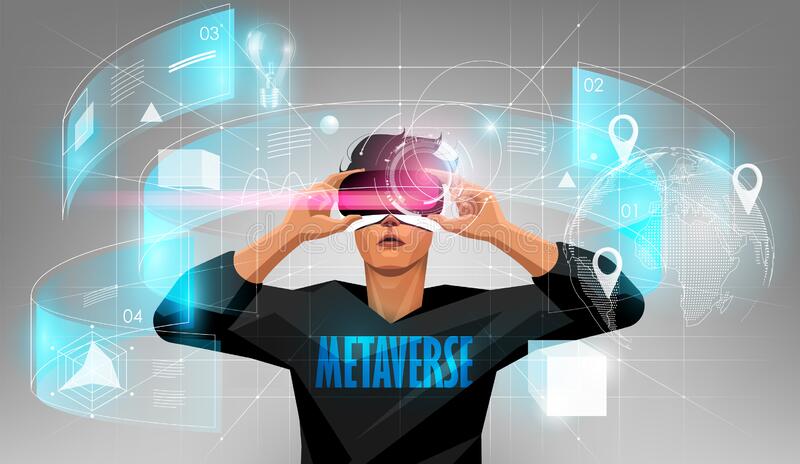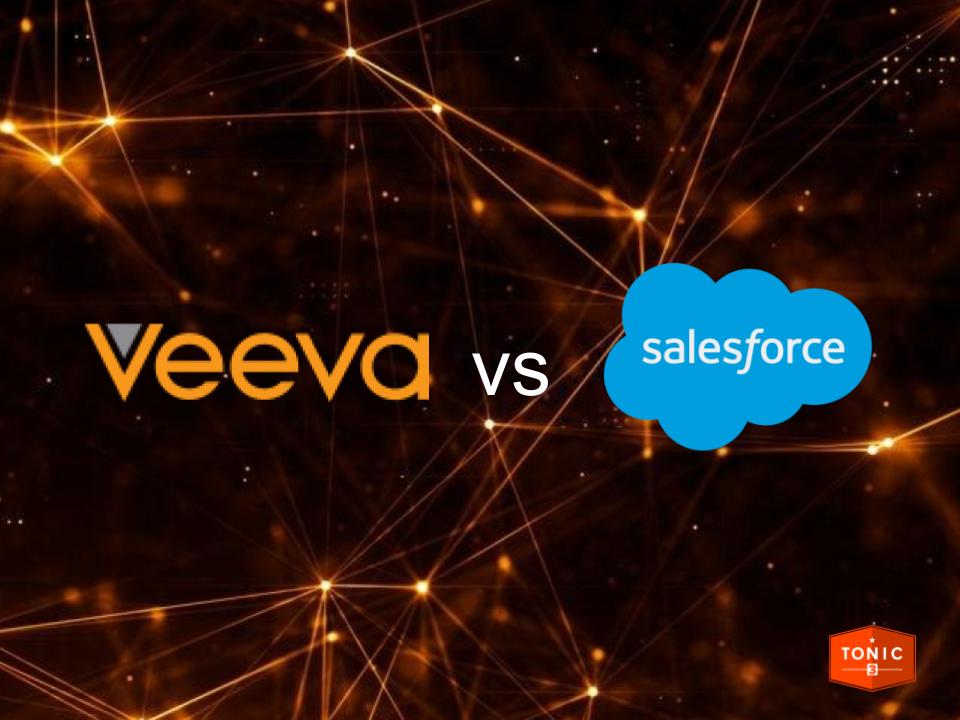Salesforce in Pharma: A Prescription for Success
In the fast-paced world of the pharma industry, managing customer relationships, data, and sales processes efficiently is paramount. Salesforce, a...
Tonic3 develops and executes strategies that drive profit through Digital Transformation. Practically that means we are built to help clients hone the right strategy, implement the right technology, and build the right long-term capabilities to deliver lasting transformation.
Industries
We believe that effective technology helps people succeed in their daily lives. So we help our clients engineer useful technology for their clients, partners, and employees. That translates to every major industry, but over the years we’ve developed several core areas of expertise.
4 min read
Marina Uchoa
:
Oct 14, 2022 12:22:33 PM

Many people associate the metaverse with video games, but that’s only the tip of the iceberg. At its core, the metaverse is about recreation, about creating experiences that transcend the limits of the real world. It’s a collective ecosystem that uses technologies such as virtual reality (VR), augmented reality (AR), and the Internet of Things (IoT) to create a virtual world full of opportunities that brands can tap into to expand their reach and boost their sales. To learn more about how brands can break into the metaverse, check out this article.
The concept of the metaverse has gone from being “too futuristic” to a hot topic for many people, including large companies and corporations. From cryptocurrencies to NFTs, the world has become more familiar with blockchain. The possibility of creating an immersive, virtual universe using blockchain technology has also become possible, drawing the attention of people around the world. With this new outlook, people began to catch on to the idea that a new phase of the internet, Web3, may be on the horizon.

In the current phase of the internet, known as Web2, technology companies such as Meta and Google dominate the field and control internet users' access and data. These well-known businesses act as centralizers and, as a result, end up forming a huge personal database, a data source that can be used to enhance marketing and user experience (UX).
On the other hand, decentralized platforms have also emerged. Operating on open-source blockchains, these platforms handle users' personal data differently. Because a decentralized blockchain is more spread out, the data collected is more spread out as well. One of the biggest representatives of decentralization is the Decentraland metaverse, where virtual land is bought and sold for millions by banks and big brands like J.P. Morgan, Samsung, and Nike.
The metaverse will allow artificial intelligence and machine learning to profile the behaviors of users on a much larger scale than social media is currently able to. By monitoring and analyzing each avatar’s actions, the virtual environment will be able to collect an impressive amount of data. Then, the data collected can be stored and used to enhance the experience.

Over the last two years, the “generation of information” trend has grown exponentially. According to Forbes, the volume of data created during this period was greater than the amount produced in the entire history of humanity. With so much more information to deal with, it’s important that companies know how to manage data effectively and use it wisely.
So, What Does Salesforce Have To Do With The Metaverse?
Today, it’s already possible to map users' preferences and habits based only on clicks, likes, and time spent on publications. But with the capabilities of the metaverse, the capacity for collecting and processing data is bound to grow. It’s likely that there will be many more elements to track and analyze on these new channels, such as heart rate, expressions, and reactions to products and advertisements, which are far beyond the interactions present on current social media platforms.
As the situation changes, it’s assumed that data protection laws, such as the General Data Protection Regulation (GDPR), will focus on the way the metaverse uses personal data. It will also become increasingly necessary for processing agents to employ smart strategies, ensure they’re compliant, and be transparent about how they use customer data
Companies and corporations need to take responsibility for data security. They should only collect and use the data necessary for their business and never violate users' rights. But this will become more challenging as the metaverse comes into play and rules change. That's where Salesforce comes in.
Salesforce is one of the most popular cloud-based CRM platforms. CRM, or customer relationship management, is the process a business or other organization uses to administer interactions with customers, typically using data analysis to study large amounts of information and improve their strategies. In particular, Salesforce integrates multiple applications and helps streamline business processes. It provides various tools to maintain customer relationships, increase sales and marketing effectiveness, and enhance customer service. Perhaps most importantly, the data management tool can also integrate channels and collect and manage data in an intelligent, controlled, and compliant manner.
Salesforce Data integration
According to Salesforce, data integration in a business context describes the process of collecting and combining data from different sources to create a unified view of the customer. However, having multiple data systems can impact a business’s ability to properly integrate data sources.
An organization’s CRM system has a key role to play in this process of data integration. CRM systems can be used to manage the interactions customers have with a business, facilitating data management processes. This allows businesses to keep track of unique customer relationships and provide better service.
Ultimately, businesses should strive for a digital transformation that leads to increased profits. Data integration can play a role in achieving this in many ways. For example, data integration can be used to make customer service more helpful and efficient, leading to more sales and intelligent business decisions. Employees with unified data also have a complete view of the customer, giving them more tools to do their jobs. This helps them to perform better and feel more fulfilled.
Improve Customer Experience (CX) With Metaverse Data
Pretty soon, companies will have to deal with data from all different sources to enhance the customer experience. While this can quickly become overwhelming, a CRM platform can help to piece together these snippets of information to create a holistic view. Salesforce believes that businesses that have a single, unified view of their customers will be able to provide more consistent and enjoyable customer experiences.
Data integration is an important part of achieving this goal, as it helps to ensure that all data is accurate and up-to-date. Businesses should think of data integration (ETL, data mapping, data cleansing, etc.) as a process that leads to the state of being that is the single source of truth (SSOT), ensuring everyone at the company is working toward the same goal and has the tools to reach it.
With accurate customer data, companies can reach customers confidently. Campaigns and messages will reach the right people at the right place and time, improving overall marketing performance and CX while also taking the guesswork out of the process.
In Conclusion
More and more businesses are realizing the value of data. Companies are beginning to treat collected data as an asset to maintain or even as an opportunity to gain a competitive advantage in an increasingly competitive market.
Interacting with data in this way within the digital universe and metaverse is already a reality. This isn’t a future problem, but something that’s already relevant to those who want to stay up-to-date with current trends. However, there’s no need to fear this new technology. We’re here to help! With 27 years of experience in technology, the team at Tonic3 can help you enter and navigate the metaverse effectively using best practices to improve your customer experience and teach you to how to manage data for better results. Let's Talk!

In the fast-paced world of the pharma industry, managing customer relationships, data, and sales processes efficiently is paramount. Salesforce, a...

Many people ask me what is the difference between Veeva and Salesforce? Veeva vs Salesforce, which is better? Both Veeva and Salesforce are CRM...

Salesforce is a game-changing platform that can help businesses of all sizes streamline operations, increase efficiency, and drive growth. To truly...